|
At the time of the Civil War, the Mississippi River was the single most important economic feature of the continent — the very lifeblood of America. Upon the secession of the southern states, Confederate forces closed the river to navigation, which threatened to strangle northern commercial interests. Admiral Porter noted his memoirs that President Abraham Lincoln in a meeting noted, "See what a lot of land these fellows hold, of which Vicksburg is the key! The war can never be brought to a close until that key is in our pocket...We can take all the northern ports of the Confederacy, and they can defy us from Vicksburg." According to Porter, Lincoln assured his listeners that "I am acquainted with that region and know what I am talking about, and as valuable as New Orleans will be to us, Vicksburg will be more so." It was imperative for the administration in Washington to regain control of the lower Mississippi River, thereby opening that important avenue of commerce, and enabling the rich agricultural produce of the Northwest to reach world markets. It would also split the South in two, sever a vital Confederate supply line, achieve a major objective of the Anaconda Plan, and effectively seal the doom of Richmond. In the spring of 1863, Major General Ulysses S. Grant launched his Union Army of the Tennessee on a campaign to pocket Vicksburg and provide Mr. Lincoln with the key to victory. The Vicksburg Campaign began in 1862 and finished with the Confederate surrender on July 4th, 1863. For over 18 months, various armies would maneuver throughout the western theater, and occasionally face each other on the battlefield. Both Union and Confederate armies realized the importance of Vicksburg, but it would take over half a year and over 48,000 casualties before the fate of Vicksburg and the Mississippi River would be determined. Engagements of the Campaign for Vicksburg
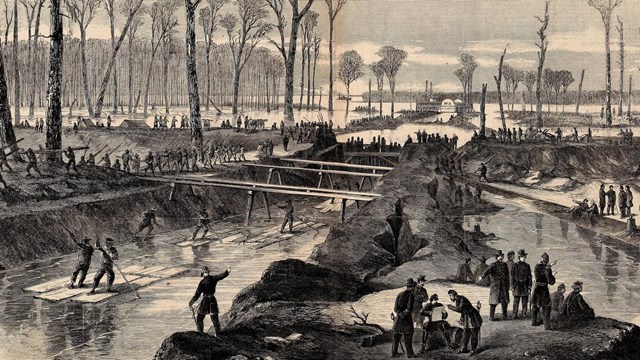
Grant's March: March 29 - April 30
Union General Ulysses S. Grant begins the final phase of the Vicksburg campaign by marching troops into the heart of the south. 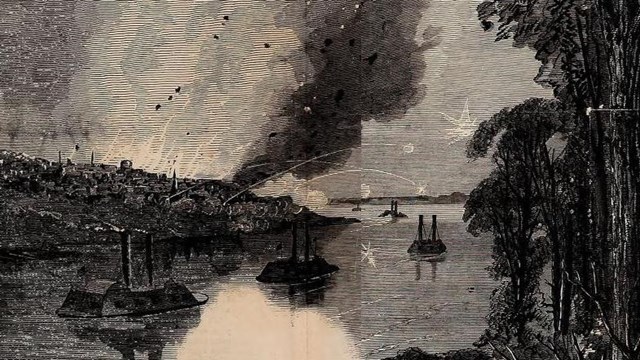
Passing the Batteries: April 16, 1863
Admiral David Dixon Porter runs his fleet past the Fortress City. 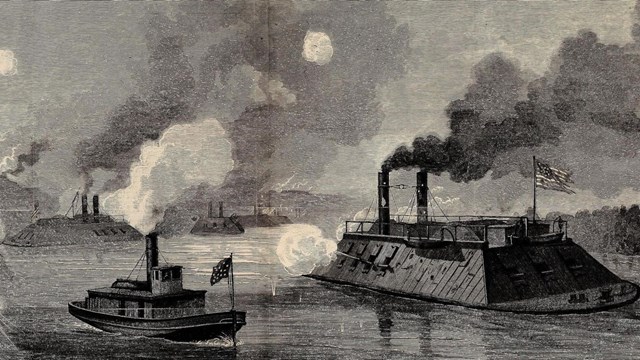
Bombardment of Grand Gulf: April 29
After unsuccessfully bombarding the Confederate defenses for hours, General Grant must abandon his river crossing plans after the Navy fleet 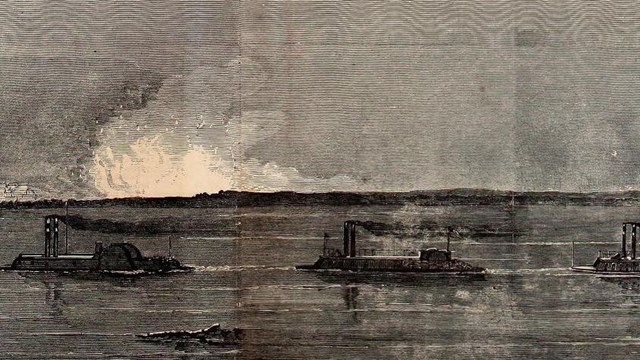
Crossing at Bruinsburg: April 30-May 1
Having failed to cross the Mississippi at Grand Gulf, Grant sets his eyes south for another river crossing. 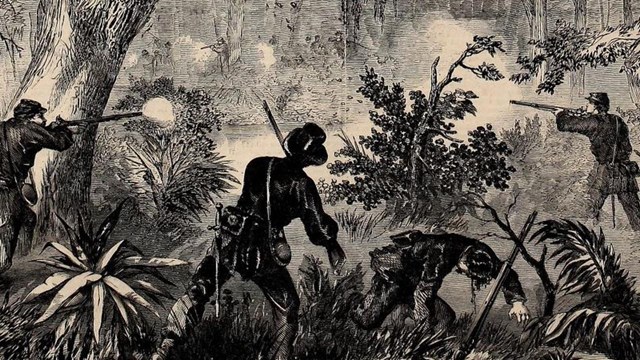
Battle of Port Gibson: May 1
Upon landing his troops in Mississippi, Union General Grant meets Confederate resistance and the first shots of the Vicksburg Campaign are f 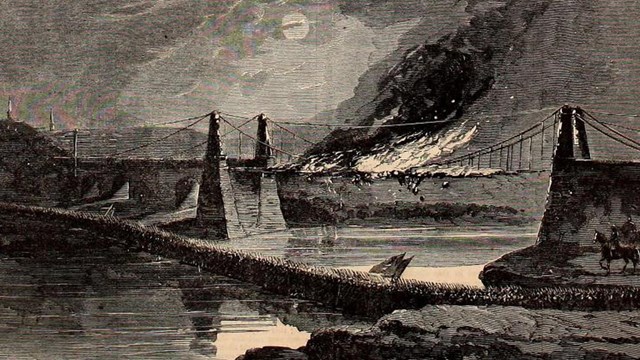
Grant's Army Pushes Inland: May 2-11
Grant marches inland to strike the railroad and cut off Vicksurg and Confederate General Pemberton. 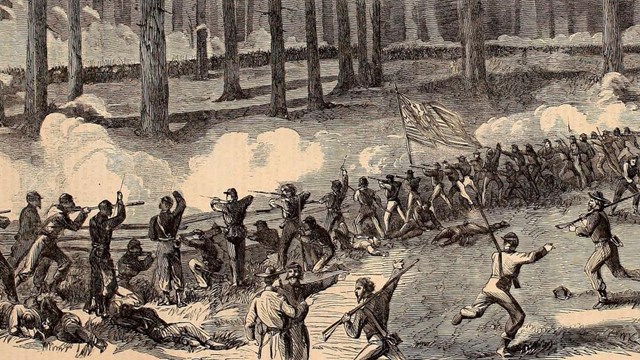
Battle of Raymond: May 12
A dating attempt by Confederate General Gregg to turn the Union flank. Union victory sets up the Battle of Jackson. 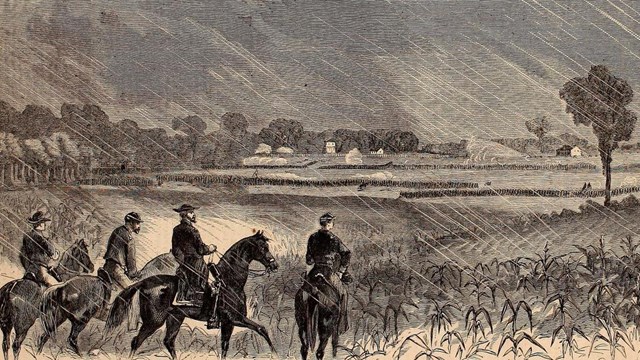
Battle of Jackson: May 14
Confederate General Joseph Johnston realizes he is too late to save the city of Jackson and abandoned the city. 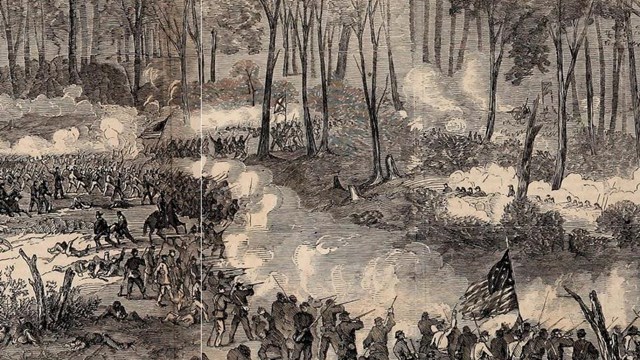
Battle of Champion Hill: May 16
The most decisive battle of the Vicksburg Campaign. Following a bloody engagement, Confederate General Pemberton retreats towards Vicksburg. 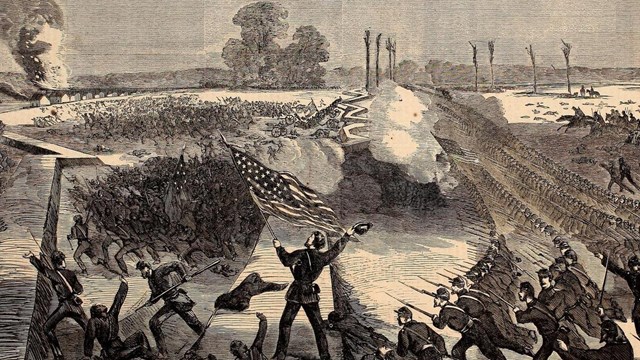
Big Black River Bridge: May 17
Confederate General Bowen is ordered to protect the river crossings to allow Pemberton's army to retreat to Vicksburg. 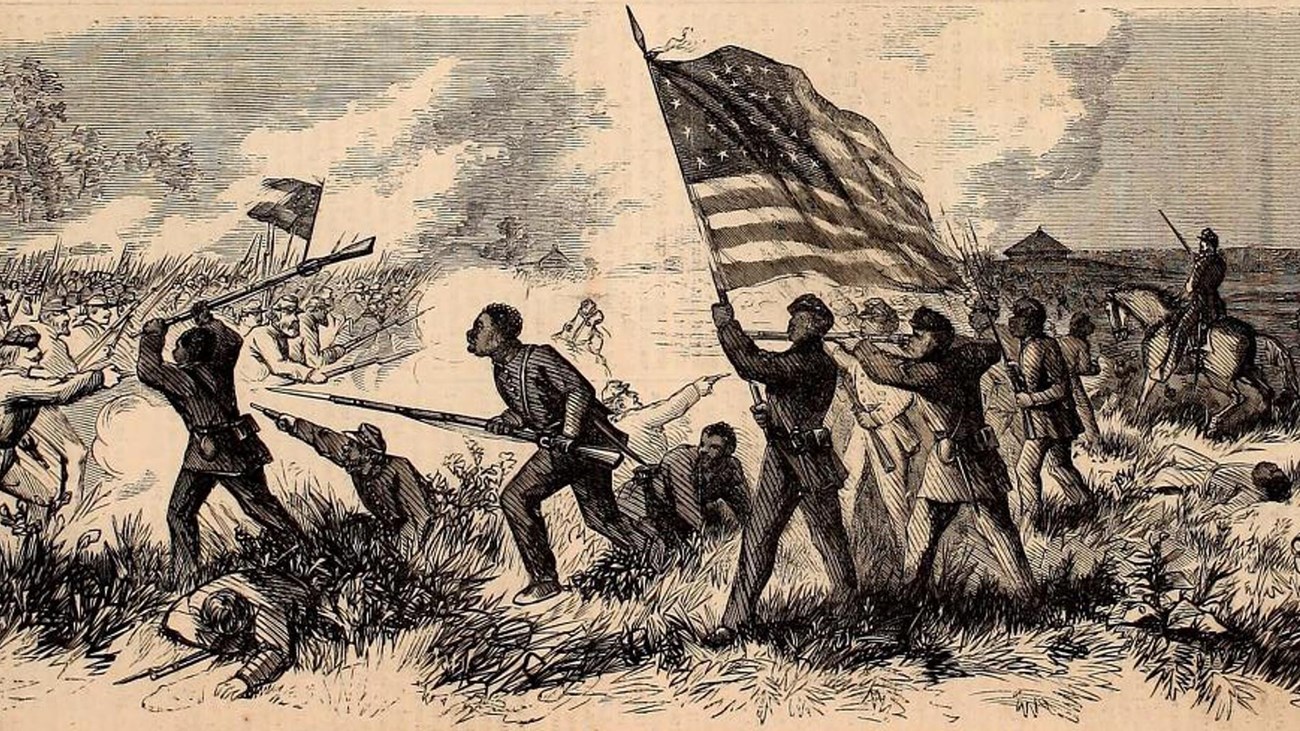
Louisiana Operations 1862-1863
Battles including Milliken's Bend and Goodrich Landing where African Americans would see formal combat for the second time in the Civil War. |
Last updated: May 3, 2024
